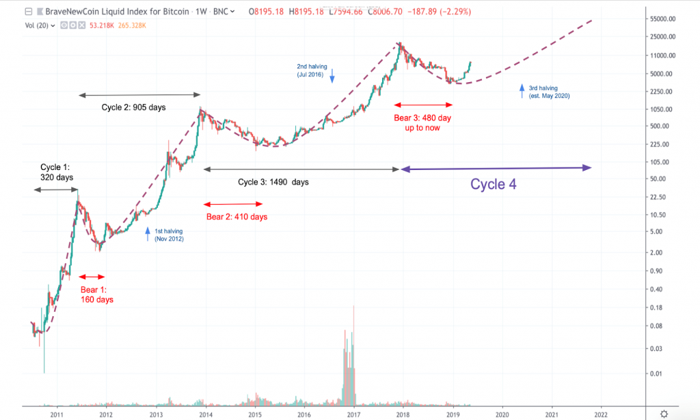The recent Ethereum security breach has raised alarms within the crypto community, particularly regarding the stability of decentralized finance (DeFi) on Ethereum. Lido, the largest liquid staking protocol, narrowly averted a serious security incident after one of its oracle keys was compromised. While the breach involved the minor theft of just 1.46 ETH (approximately $4,200), the implications for Ethereum’s overall crypto security cannot be underestimated, given that Lido manages over 25% of all staked ether. The situation underscores the critical need for improved protocols and robust security measures as DeFi continues to grow. Ensuring the safety of user funds remains paramount, especially in light of this recent crypto security incident.
The recent breach involving Ethereum’s largest liquid staking protocol highlights the vulnerabilities present in decentralized finance (DeFi) systems. In this incident, Lido faced a significant challenge when one of its oracle keys fell into the wrong hands, although the impact on user funds was minimal. This event raises questions about the integrity of crypto security frameworks and the necessity for continuous improvements in Ethereum’s ecosystem. As DeFi on Ethereum expands, ensuring trust and security will be essential for maintaining user confidence. The rapid development and implementation of Ethereum improvements will be key to preventing future security mishaps in this evolving landscape.
Ethereum Security Breach: Impact and Response
The recent security breach involving Lido, Ethereum’s leading liquid staking protocol, raised significant concerns in the crypto community. Although the breach resulted in a low-impact theft of only 1.46 ETH in gas fees, the implications of compromised oracle keys cannot be overlooked. With Lido maintaining over 25% of all ether staked on the Ethereum network, a robust security framework becomes paramount. Both Lido and validator operator Chorus One have assured that user funds remain unaffected, demonstrating the importance of proactive measures in ensuring DeFi on Ethereum remains secure.
In light of this incident, it is crucial for all Ethereum stakeholders to prioritize security protocols. Regular audits, the use of multi-signature wallets, and stringent access controls are essential components in safeguarding against similar breaches. The Lido security event not only serves as a reminder for existing platforms but also highlights the need for enhanced Ethereum improvements focused on security. By learning from less severe incidents, the ecosystem can further fortify its defenses against more substantial threats to crypto security.
The Rise of Ethereum Liquid Staking and Its Challenges
Ethereum liquid staking has revolutionized the way participants engage with the network. As platforms like Lido emerge as frontrunners, users can stake their ether while simultaneously accessing liquidity through derivatives. This unique model allows for greater flexibility and encourages higher participation in staking. However, with increased participation comes the challenge of securing these liquid staking protocols against potential breaches, as highlighted by the recent Lido incident.
The efficiency and scalability of Ethereum liquid staking depend on the resilience of its underlying protocols. As DeFi continues to evolve on the Ethereum network, the development of secure and user-friendly platforms will be paramount. Security incidents like Lido’s underscore the critical need for enhanced security frameworks that incorporate advanced technologies, such as decentralized oracles and multi-layered security approaches. This focus will help to ensure the long-term sustainability and trustworthiness of Ethereum liquid staking.
Coincidentally, Ethereum developers are actively working on improvements that address these concerns. Upcoming upgrades, like Fusaka, aim to enhance transaction efficiency and wallet accessibility, ultimately contributing to a safer DeFi environment.
Collaboration among DeFi protocols can also foster innovation in security measures, enabling the entire ecosystem to benefit from shared best practices and technologies. This cooperative spirit will be essential as the Ethereum landscape continues to mature and refine its approach to transparency and security.
Decentralized Finance on Ethereum: Opportunities and Growth
Decentralized finance (DeFi) on Ethereum remains a vibrant and promising sector, attracting developers and users alike with its potential for financial innovation. Platforms operating within this space, such as Lido and others, have become critical infrastructures in the Ethereum network, providing a variety of financial services that operate without intermediaries. The growth of DeFi has been facilitated by an increasingly robust ecosystem of protocols and solutions designed to enhance liquidity and accessibility.
As DeFi applications gain traction, they also present challenges, particularly regarding user security and asset protection. The recent Lido security breach serves as a reminder of the vulnerabilities that exist within these platforms. To ensure continued growth, participants must prioritize the adoption of best practices in crypto security, such as rigorous auditing processes and transparent operational protocols. With an increased emphasis on securing DeFi on Ethereum, stakeholders can foster a resilient environment that appeals to a broader audience.
Navigating Crypto Security Incidents: Lessons Learned
In the world of cryptocurrency, security incidents are often inevitable as the market continues to evolve. The recent security breach involving Lido is a stark reminder of the critical importance of robust security measures in protecting user assets. As incidents unfold, the crypto community must take proactive steps to understand the nature of these breaches and implement lessons learned to fortify their own platforms. Security incidents will persist, but learning from them will empower both developers and users to create a safer ecosystem.
One significant takeaway from the Lido incident is the necessity for transparency and communication between protocol developers and users. Providing clear information about what vulnerabilities have been addressed and how future incidents will be mitigated can significantly bolster user confidence. Transparency in operations can also promote stronger decentralized governance, encouraging stakeholders to participate actively in ongoing security discussions. In doing so, the entire ecosystem can evolve more securely, paving the way for continued growth and innovation across all aspects of Ethereum and DeFi.
Future Enhancements: Ethereum Improvements on the Horizon
The ongoing development within the Ethereum network promises a host of innovative improvements aimed at enhancing performance, security, and user experience. Just recently, Ethereum experienced its most significant upgrade, Pectra, which introduced key changes to facilitate institutional staking and improve transaction efficiency. As the Ethereum community looks to the future, the next major upgrade known as Fusaka is already on the drawing board, projected to support larger blobs of transaction data and offer even more enhancements.
These upgrades will contribute significantly to addressing scalability challenges and improving Ethereum’s overall infrastructure. As DeFi and Ethereum liquid staking become more prevalent, the demand for efficient, scalable solutions will intensify. The proposed Ethereum Improvement Proposals (EIPs) pave the way for innovations that can withstand increasing user expectations while maintaining a high level of security. By embracing these improvements and focusing on future challenges, Ethereum can solidify its position as a leading blockchain platform for decentralized finance and beyond.
Telegram’s Approach to Combating Crypto Crime
In response to the rising concerns over crypto-related crime, Telegram has taken significant steps to shut down thousands of channels linked to suspected illicit activities. This crackdown comes as the crypto crime landscape evolves, particularly with platforms like Xinbi Guarantee operating on the messaging app. By blocking these channels, Telegram demonstrates its commitment to fostering a safer digital environment for its users. This initiative aligns with ongoing efforts to combat crime in the crypto space, providing a necessary counterbalance to the potential risks associated with decentralized finance.
The implications of Telegram’s actions extend beyond mere platform management; they speak to the industry’s broader responsibility in mitigating risks linked to cryptocurrency. Transparency in operations and timely reporting of illegal activities are critical to ensuring the ongoing development of secure environments for users. Telegram’s efforts signify an important shift towards established security protocols in crypto communication channels. As DeFi continues to blossom on blockchain networks, the collaborative effort of all participants, including communication platforms, will be necessary in combatting the threats associated with crypto crime.
Frequently Asked Questions
What was the impact of the Ethereum security breach involving Lido Oracle?
The recent Ethereum security breach involving Lido Oracle resulted in the compromise of one of its nine oracle keys held by validator operator Chorus One. This incident, while serious, was deemed low-impact as it led only to the theft of 1.46 ETH in gas fees, without affecting user funds or leading to a broader compromise. Lido continues to secure over 25% of all ether (ETH) staked on Ethereum.
How does the Lido Oracle security issue affect Ethereum liquid staking?
The Lido Oracle security issue has raised concerns within the Ethereum liquid staking ecosystem. Although the breach was low-impact, it highlights vulnerabilities that could affect protocols that manage significant amounts of ETH. Lido’s prompt response ensured user funds remained secure, but ongoing attention to crypto security incidents is crucial for maintaining trust in Ethereum liquid staking.
What measures can be taken to improve crypto security against Ethereum security breaches?
To improve crypto security against Ethereum security breaches, protocols like Lido can adopt multi-signature wallets for critical operations, conduct regular security audits, and implement robust monitoring systems for oracle keys. Understanding the nuances of Ethereum improvements can also help developers strengthen the security landscape to prevent similar incidents in the future.
What does the recent Ethereum security breach mean for DeFi on Ethereum?
The recent Ethereum security breach involving Lido Oracle serves as a wake-up call for the DeFi on Ethereum landscape. It underscores the importance of rigorous security measures and transparency in protocols managing liquid staking. The incident could encourage further Ethereum improvements that prioritize security, thus enhancing user confidence in DeFi projects.
What are the potential long-term effects of Lido’s security breach on Ethereum’s ecosystem?
Long-term effects of Lido’s security breach on Ethereum’s ecosystem may include increased scrutiny of DeFi protocols and the implementation of stricter security measures across projects. As Lido secures a quarter of all staked ETH, the incident may lead to reforms and new Ethereum Improvement Proposals (EIPs) focusing on enhancing blockchain security features.
How does the Lido Oracle breach inform future Ethereum improvements?
The Lido Oracle breach provides valuable insights for future Ethereum improvements by highlighting the need for enhanced security practices within DeFi protocols. Developers are likely to prioritize proposals such as EIPs that focus on user safety and system resilience, ensuring that Ethereum can better safeguard against potential security incidents like this one.
| Key Point | Details |
|---|---|
| Lido Avoids Major Security Breach | Lido, Ethereum’s largest liquid staking protocol, mitigated a security incident involving one compromised oracle key without major user impact. |
| Impact of the Key Compromise | The breach led to a theft of 1.46 ETH ($4,200) in gas fees, but user funds remained secure and unaffected. |
| Bitcoin DeFi Market Growth | Bitcoin DeFi is emerging with increased security, particularly through Rootstock, which is now validated by 81% of the Bitcoin hashrate. |
| Fusaka Upgrade Planning | Ethereum developers are planning the next major upgrade, Fusaka, focused on enhancing data transactions for larger blobs. |
| Telegram’s Crackdown on Crypto Crime | Thousands of channels linked to suspected crypto crimes were shut down by Telegram in response to research on illicit activities. |
Summary
The recent Ethereum security breach involving Lido highlights the critical importance of maintaining robust security measures within leading protocols. Despite the compromise of one oracle key, which led to a minimal theft, the overall integrity of user funds was preserved. Lido’s proactive response and swift containment of the incident demonstrate the resilience of key players in the Ethereum ecosystem against potential threats. As Ethereum evolves with its upcoming upgrades and the growing decentralized finance landscape, the need for continued vigilance against security breaches remains paramount.
The recent Ethereum security breach has raised eyebrows across the crypto community, shining a light on vulnerabilities even in the most established protocols. Lido, which stands tall as Ethereum’s largest liquid staking provider, narrowly escaped a significant incident due to the compromise of one of its nine oracle keys linked to validator operator Chorus One. While the breach was classified as low-impact, it still resulted in a loss of 1.46 ETH ($4,200) in gas fees, underscoring the importance of robust crypto security measures. Fortunately, the breach did not affect user funds, nor was there any evidence of a broader compromise within the DeFi on Ethereum ecosystem. This incident highlights the need for Ethereum improvements and vigilance as the landscape evolves and the stakes continue to rise.
A recent security incident involving Ethereum has highlighted the critical importance of safeguarding protocols within the blockchain landscape. The liquid staking platform Lido, which plays a crucial role in managing a significant chunk of staked ether, experienced a breach that involved one of its oracle keys, causing minor financial loss. Such crypto security events remind stakeholders of the need for continuous enhancements and the adoption of rigorous safety protocols in decentralized finance (DeFi) operations. The incident serves as a wake-up call for developers and users alike, underlining that even well-established systems such as those on Ethereum require constant vigilance and upgrading to address emerging threats. As the decentralized finance sector on Ethereum grows, so does the necessity for improvements in security frameworks to protect users and their assets.














